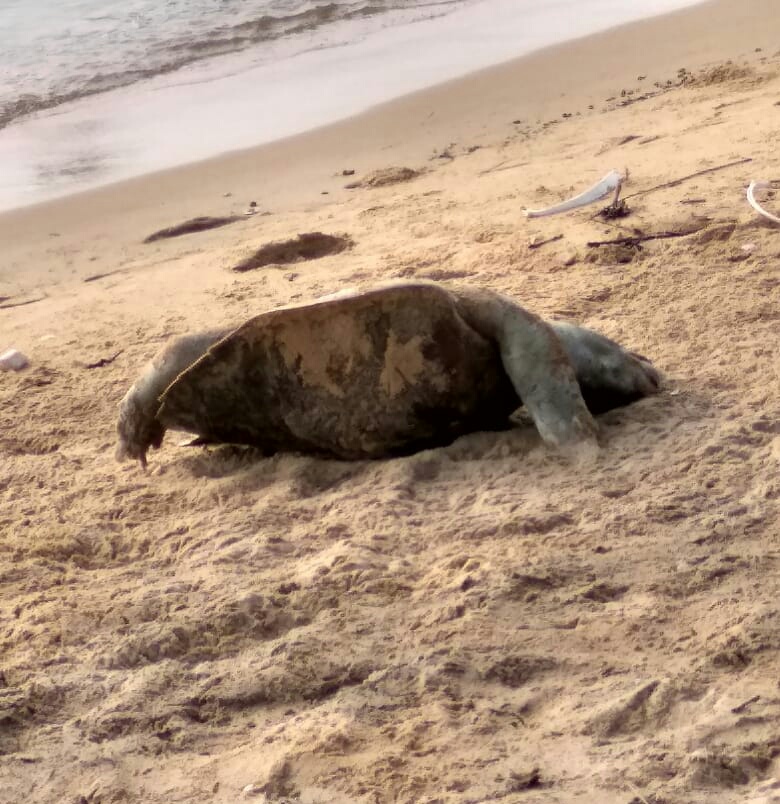Ganjam: Even as the district administration and forest officials have started taking steps for safe mass nesting of Olive Ridley turtles and subsequent hatching of eggs, carcasses of turtles found lying on the beach here have belied their claims.
The matter came to the fore after locals noticed dead turtles on the beach at the mouth of river Rushikulya at Purunabandh near Ganjam town Sunday.
This has sparked concern among environmentalists while residents thronged the spot to catch a glimpse of the dead turtles lying on the beach.
It is feared that this might adversely affect and delay the mass nesting of sea turtles. Environmentalists claimed that tidal waves crossing the beach and sea erosion could be the reason for delay in mass nesting.
Khallikote forest ranger Dillip Martha said the turtles were killed after being hit by fishing trawlers near Paradip coast and other sea areas.
The dead turtles float in the sea for about 10-15 days and later they would be washed ashore by tidal waves. He, however, claimed that more turtle carcasses are found on other beaches than Rushikulya.
Rambha forest ranger Somanath Mallick rejected the charges that the beach poses danger for the marine turtles and has become unprotected.
He said the forest department is taking every step to protect the sea turtles from external attacks as it is the time for their mass nesting. While the beach has been declared a prohibited zone, fishing has been banned on a 5km stretch off the coast.
Barricades have been erected to protect the endangered turtles from predators during mass nesting and hatching of eggs and coast guard officials have been deployed in the area.
Moreover, while some of the turtles died after being hit by trawlers and ships, some of them might have died due to old age, he added.
These rare turtles travel thousands of miles in seas for laying eggs on Rushikulya coast, in Gahirmatha Marine Sanctuary and other coasts in the state.
PNN

